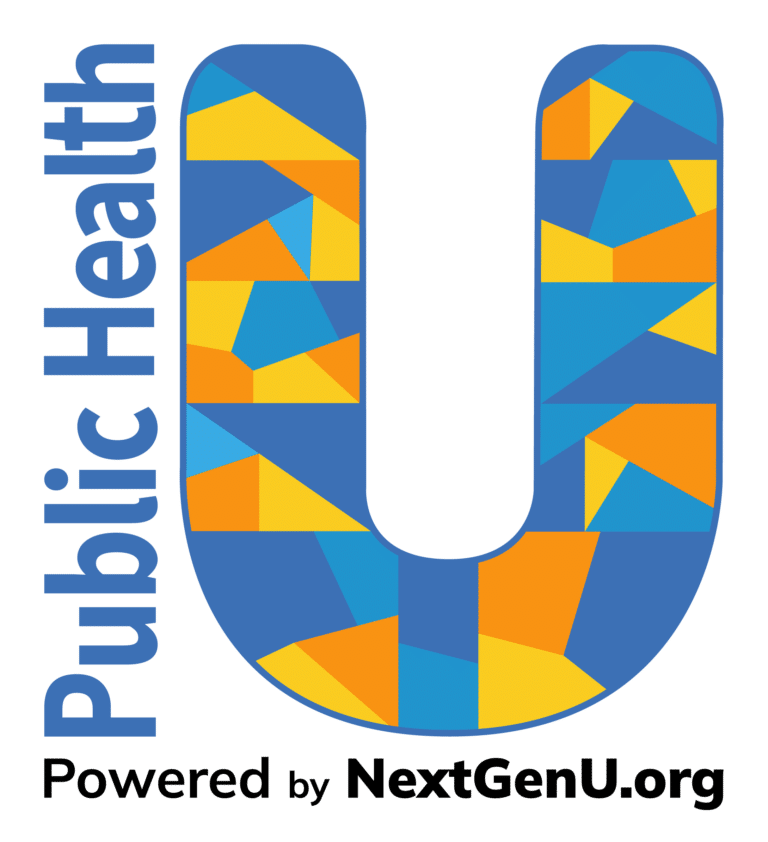Each module in this program is divided into 5 topics, each with a set of resources (as online links with descriptive metadata, as well as in pdf format in zip files), a discussion forum for the exchange of ideas and the exploration of concepts between students and an online facilitator, and a quiz. Summative assessments comprise discussion forums, quizzes, and essay questions equivalent to 3,500 words, including critical analysis.
Foundation Sciences of Public Health Group
Biostatistics [PHUBIOS] 15 credits
The unit introduces you to the art and science of collecting, analyzing, and interpreting data from medical and biological studies. It presents statistical concepts without invoking mathematical complexity, emphasizing intuitive, easy-to-grasp explanations and lots of examples drawn from the medical literature.
This unit comprises 5 topics, which cover:
-Descriptive Statistics;
-Starting to Examine Data;
-Comparing Data;
-Exploring Data; and
-More Data Comparisons.
Evidence-Based Practice [PHUEBP] 15 credits
Evidence-Based Practice is cited as the basis of all our public health and healthcare decisions, but what does that mean in practice? How do we know which evidence to use? When there is so much research evidence, why is there still so much controversy over the best course of public health action? This module covers how to formulate an answerable question, access, appraise, and use the evidence on a public health issue.
The unit comprises 5 topics, which cover:
-Asking the Question;
-Accessing the Evidence;
-Appraising the Evidence;
-Applying the Evidence; and
-Assessing and Evaluating – How can evidence be used in your practice?
Evaluation of Interventions [PHUEVAL] 15 credits
The unit will focus on the implementation of innovative and rigorous evaluation methods to evaluate public health interventions which have the ambition of improving health outcomes, since many of the important issues in public health today are not easy to solve and require complex interventions to address.
This unit comprises 5 topics, which cover:
-Introduction to Evaluation;
-Program Theory and Theory of Change;
-Introduction to Evaluation Design;
-Measurement, Sampling, Data Collection and Analysis; and
-Alternative Evaluation Approaches.
Health Economics [PHUHECO] 15 credits
The unit provides an introduction to health economics for those who want to understand the important contribution that economics can play in the health of populations. The unit includes health and socio-economic development, health care financing, economic evaluation in health care systems, and priority setting in health.
This unit comprises 5 Topics, which cover:
-An Introduction to Health Economics;
-Healthcare Financing;
-Health and Socio-Economic Development;
-Introduction to Economic Evaluation; and
-Health System Efficiency and National Health Priorities.
Health Promotion [PHUHPROM] 15 credits
The unit focuses on identifying the key concepts and theories underlying the practice of health promotion, its relevance to the social determinants of health, the implementation process of promoting health, and ends by identifying ways to implement a Health Promotion plan in their own setting.
The unit comprises 5 topics, which cover:
-Introduction to the Basic Concepts of Health Promotion;
-Values, Principles, and Determinants of Health;
-Theories and Strategies of Health Promotion;
-Health Promotion in Practice: Planning and Implementation; and
-Design Your own Health Promotion Project.
Inequalities & the Social Determinants of Health [PHUISDH] 15 credits
This unit addresses the implementation of recommendations to reduce health inequalities and become aware and knowledgeable about global/regional health inequities and social determinants of health. The unit includes an understanding of the social determinants of health, how to measure inequity, and apply and plan interventions to reduce inequity in the context of international efforts.
This unit comprises 5 topics, which cover:
-Global and National Action on Social Determinants;
-Introduction and Basic Concepts of Health Inequities and Social Determinants of Health;
-Methods of Measuring Health Inequalities;
-Health Outcomes and Inequities Using a Social Determinants Approach; and
-Planning an Intervention to Reduce Health Inequalities.
Introduction to Epidemiology [PHUEPI] 15 credits
The unit is designed to provide an introduction to the concepts underlying epidemiology and the main methods employed by the discipline. On completing the module, students should have a good grasp of why epidemiology underpins much of the effort of those whose work involves promoting population health and providing health services. Students should also learn to approach published material based on epidemiological methods in a more critical and informed manner.
This unit comprises 5 topics, which cover:
-Measuring Health and Disease;
-Measurement Error;
-Cross-Sectional and Prevalence Studies;
-Studying Disease Incidence and Causation; and
-Evaluation Using Randomized Controlled Trials.
Public Health Concepts for Policy Makers [PHUPHC] 15 credits
The unit is designed to provide an introduction to aspects of public health that are important for creating policies that positively impact population health. It includes an understanding of what is public health and the determinants of health, how to assess the health of the public, methods of intervention, how to use evidence in public health policy-making, and how to evaluate the implementation of health policy from a public health perspective.
This unit comprises 5 topics, which cover:
-What is Public Health and the Determinants of Health;
-Public Health Policy-Making and Use of Evidence
-Methods of Intervention;
-Assessment of Public Health; and
-Evaluating the Implementation of Health Policy with a Public Health Perspective.
Public Health Problems Group
Communicable Diseases [transmission, surveillance, and control] [PHUCOMDIS] 15 credits
Communicable diseases result from the spread of a causative organism from people to people or from animals to people. They produce a significant burden of illness globally, but particularly in low-income settings. There are also a number of potential emerging communicable diseases, as evidenced by COVID-19.
In this module, you will understand the public health aspects of communicable diseases, such as transmission, surveillance, application and design of control programs, the epidemiology of common diseases, immunization, and responding to an outbreak.
This unit comprises 5 topics, which cover:
-Key Concepts of Communicable Diseases;
-Surveillance of Disease of Public Health Importance;
-Immunization;
-Responding to a Communicable Disease Outbreak; and
-Application and Design of Control Programs for Communicable Diseases.
Disaster Management & Emergency Planning [PHUDMEP] 15 credits
All communities are vulnerable to disaster, and following the event would endeavor to limit the damage from it. Assessing and reducing the risks before a disaster occurs is as important as responding to it and dealing with the consequences; both need to be professional to be effective.
This unit comprises 5 topics which cover:
-Disaster Planning – Assessing Hazards;
-Emergency Planning and Preparation;
-Responding to a Disaster: Emergency Needs Assessment;
-Monitoring and Assessing the Impact of the Disaster Response; and
-Response and Recovery.
Maternal Mortality [PHUMM] 15 credits
Maternal morbidity and mortality remain significant problems in many parts of the world – one of the most important threats to public health. The purpose of the unit is to provide the people who may help tackle the problem with the knowledge and skills to do so. The unit focuses on identifying the size of the problem, the causes, and the evidence base behind interventions to improve the situation, and ends by identifying ways to implement evidence-based solutions in your own setting.
The unit comprises 5 topics, which cover:
-Introduction to Maternal Health;
-Epidemiology and Causation;
-Health Service Systems;
-Evidence-Based Solutions;
-Implementing an Intervention.
Non-Communicable Diseases – CVD & Diabetes [PHUNCD] 15 credits
Despite a focus on the control of communicable diseases in developing countries in the past, it is now apparent that non-communicable diseases have crept up on these populations and create a major threat. The unit aims to help practitioners understand the size of this threat and its causes and develop policies to reduce the growing burden on developing country populations. We cannot cover all non-communicable diseases in this unit, and have chosen to focus on CVD and Diabetes. Learning from this unit will help students appreciate the evidence base required to plan interventions to reduce the threat from these conditions.
This unit comprises:
-Size of the Problem (burden of illness, macroeconomics);
-Causes (risk factors, including individual, population, and socio-cultural determinants);
-Appraising the Evidence that Underpins International Interventions and Prevention Programs;
-How can we Make Health Policies to Reduce the Burden of NCDs; and
-Implementing Prevention Programs.
Public Health Nutrition [PHUPHNUT] 15 credits
This unit aims to provide information to enable students to understand key nutrition issues and then integrate this knowledge into devising evidence-based nutrition interventions and evidence-based policies that meet vulnerable communities’ health and nutrition needs in developing country settings.
This unit comprises 5 topics, which cover:
-Fundamentals of nutrition, Public Health nutrition, and Assessment of Nutritional Status;
-Issues Related to Nutrition of Importance to Public Health;
-Food Supply, Policy, and Security;
-Strategies for Nutritional Interventions: The Evidence Base;
-Interventions – How to Develop and Evaluate Your own Intervention.
Requirement for Masters Dissertation [PHUDiss] 60 credits (after passing 8 of the modules above)
The dissertation aims to enable students to synthesize the previous parts of their learning experience, build on their experience, and use skills and knowledge to develop, critically assess, and evaluate a potential solution to a locally relevant public health problem. Each student will be assigned an academic supervisor and enrolled in a facilitated discussion forum with other students enrolled in the dissertation. Each student will be expected to produce a systematic literature review, a research project design, and a reflective essay.

